Mini Homemakers: What Our Survey Reveals About Kids and Chores
Raising children often means teaching them important life skills, and there's no better way to drive the point home than through household chores.
To better understand how families across the UK approach this, Beko UK surveyed parents to gain a deeper understanding of when their kids start helping at home, which chores they do most often, and how parents motivate them.
When Do Children Start Doing Chores?
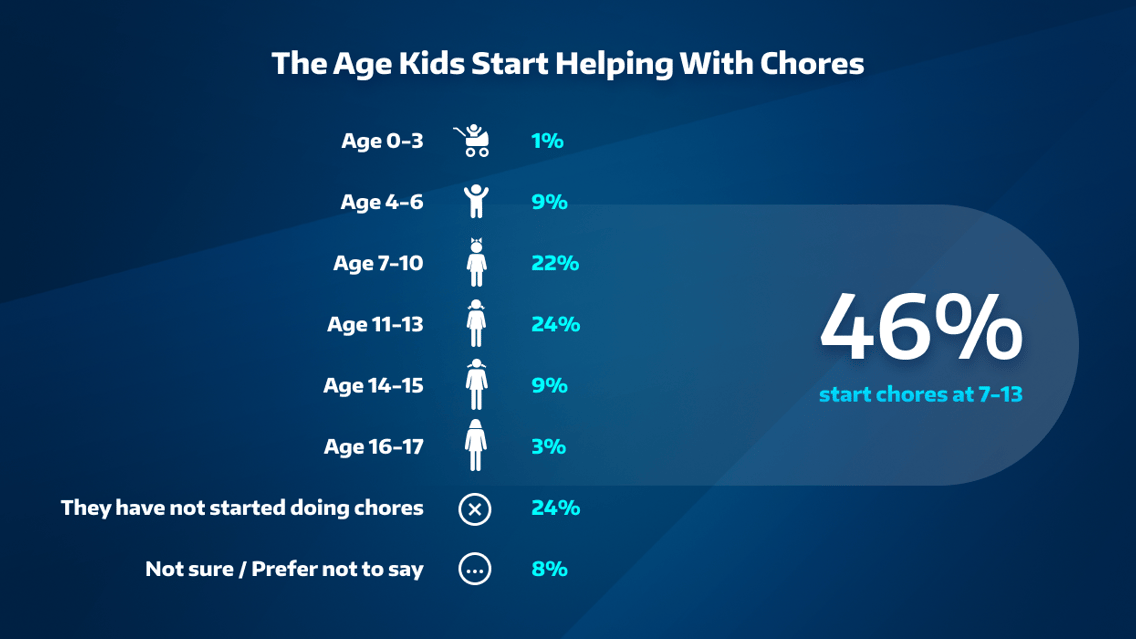
Thanks to our research, we found that children typically begin doing chores around ages 7-13. Parents see this as the stage when it feels appropriate to begin encouraging children and giving them opportunities to take on responsibility.
What Are Common Pre-Teen Chores?
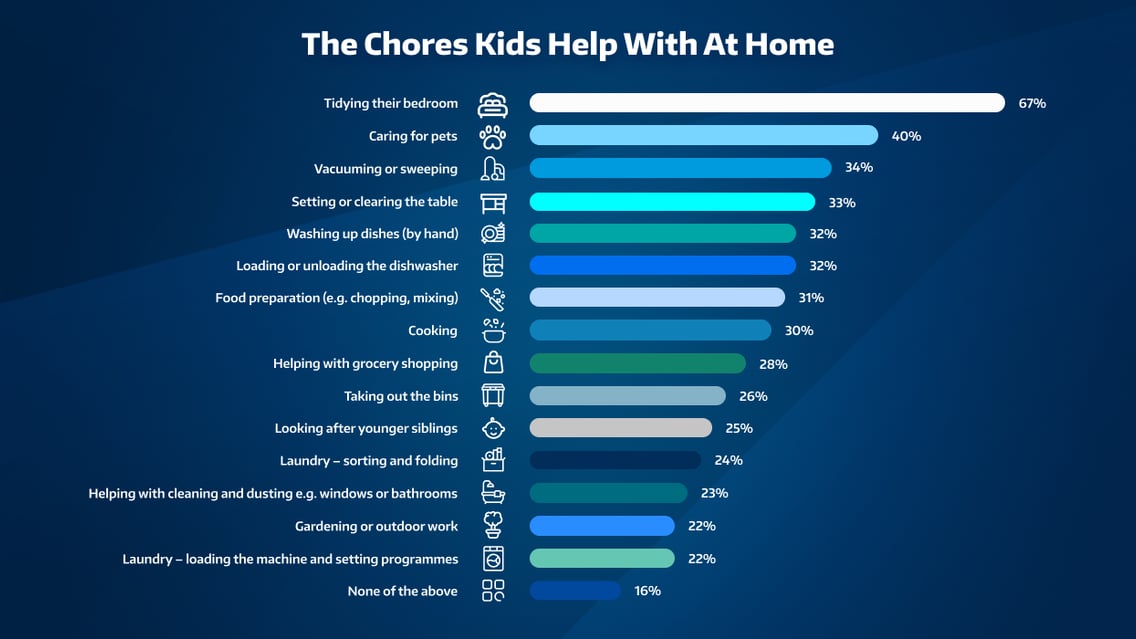
When asked which chores are most common, parents reported that their children most often:
- Tidy their bedroom - by far the most frequent, with nearly two-thirds doing this regularly
- Care for family pets - around 40% help feed, walk, or look after animals
- Take on other household tasks such as washing the dishes, vacuuming, and doing laundry
These everyday responsibilities act as starter activities that help children gradually build independence and confidence.
Are Kids Paid for Chores?
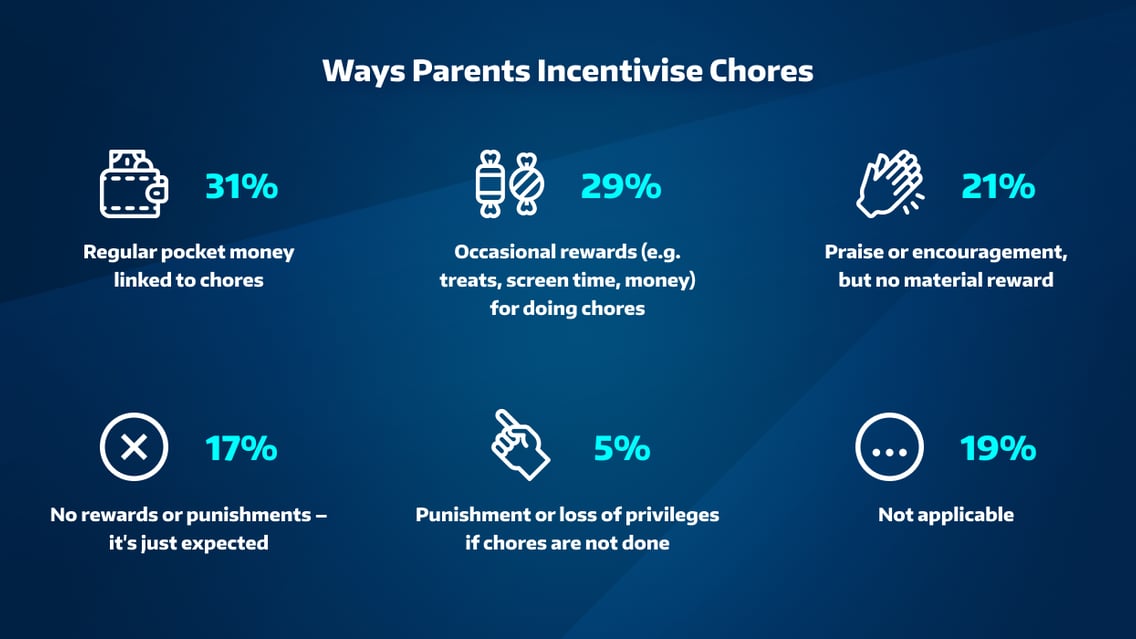
Although it would be nice, not all kids are willing to do their chores for free. According to the survey, Beko found that:
- 31% of parents pay their kids an allowance for their chores
- Other parents offer additional screen time, treats and earned privileges for jobs well done
- On the other side, 17% of parents give no rewards at all – chores are simply expected to be done
This highlights that many parents use chores both as a way to recognise good behaviour and as a tool to teach the value of earning rewards through hard work.
Why Do Parents Value Chores?
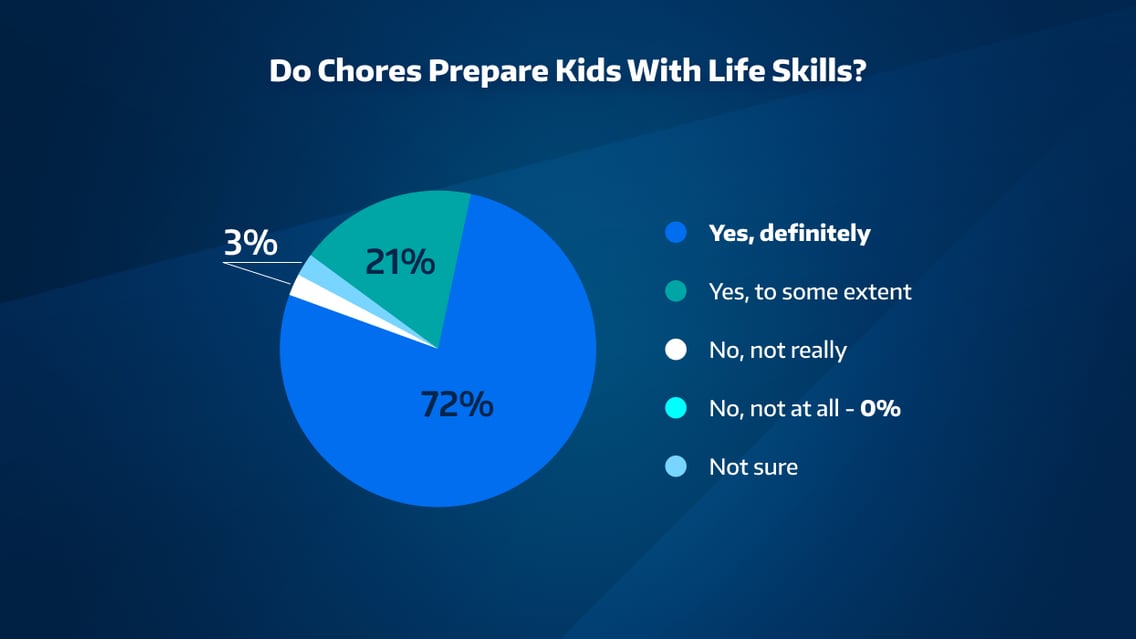
For parents, performing household tasks is about so much more than just a clean home. Over 6 in 10 parents (62%) agreed that doing chores helps children develop independence and responsibility.
When asked if household chores support personal growth, nearly three quarters of parents said ‘yes, for sure’ (72%). This suggests that many parents view chores as an effective way to help prepare their children for life at an earlier stage.
How Beko Makes Chores Easier for Families
At Beko, we know that with the right appliances, everyday chores, and the learning opportunities that come with them, can feel simpler and more enjoyable.
Our dishwashers save precious time in busy households, while our energy-efficient washing machines make laundry effortless. By lightening the overall workload, our appliances give children the chance to play their part in keeping the home running smoothly and learning responsibility along the way.
Preparing Kids for the Future
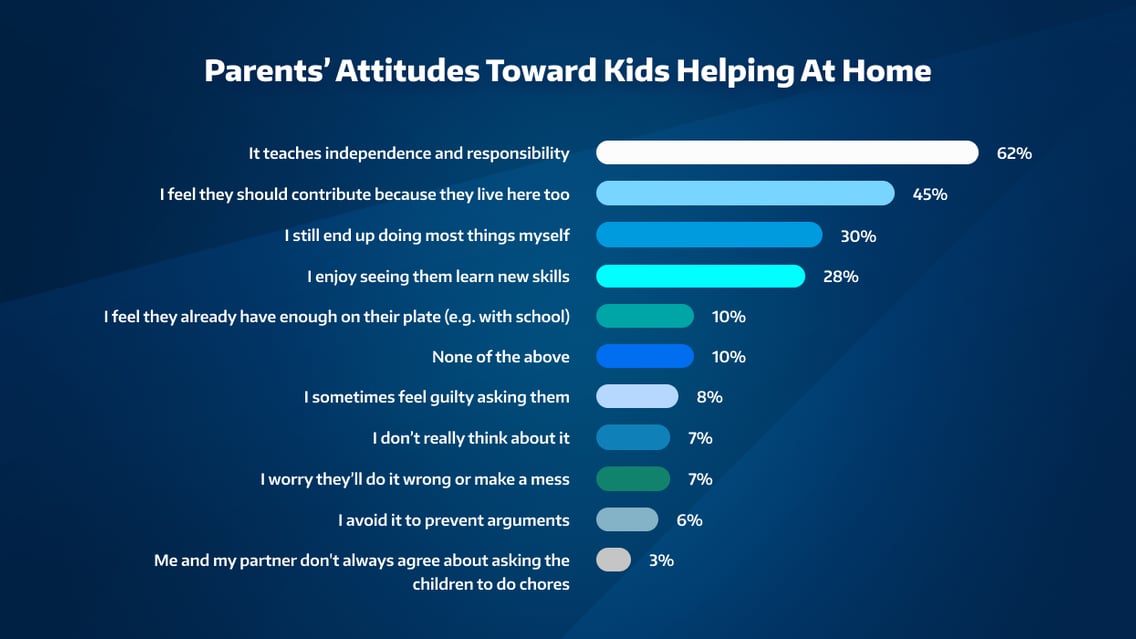
Our research shows that UK parents often turn everyday chores into valuable life lessons.
From tidying bedrooms and helping with the vacuuming, to earning rewards and taking responsibility for tasks like caring for pets, children are building practical skills that will benefit them long into adulthood.
The survey was conducted using Find Out Now and included interviews with 552 respondents whose oldest child was aged between 14 and 17.



